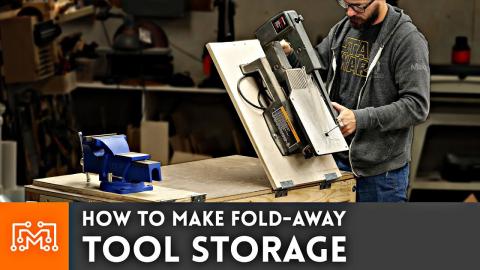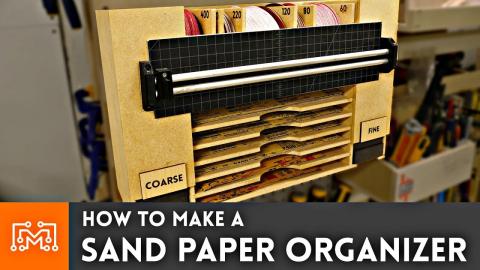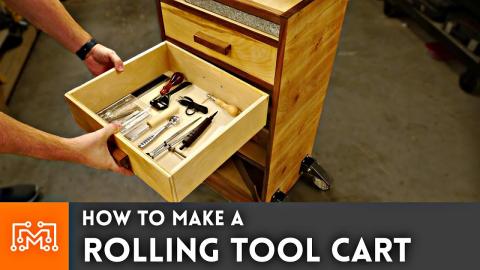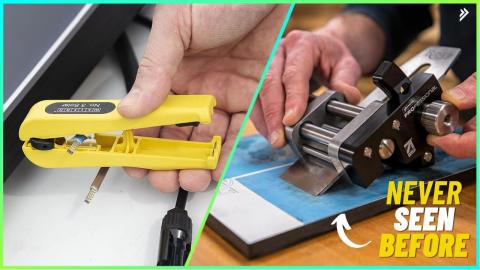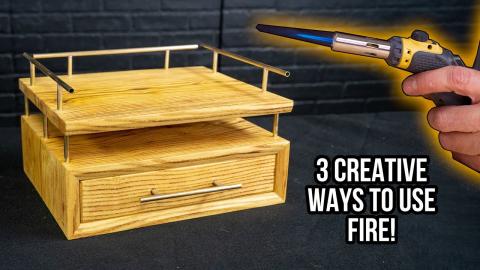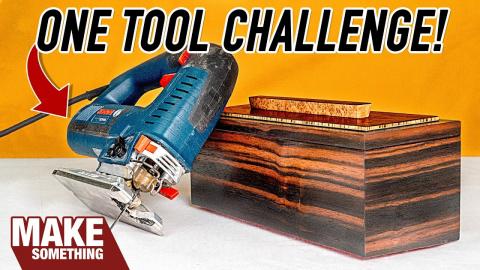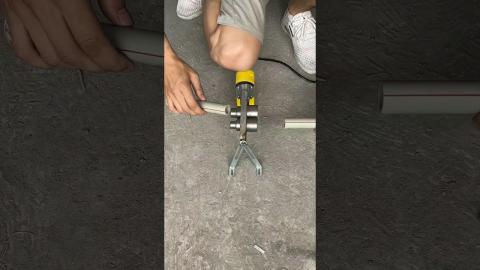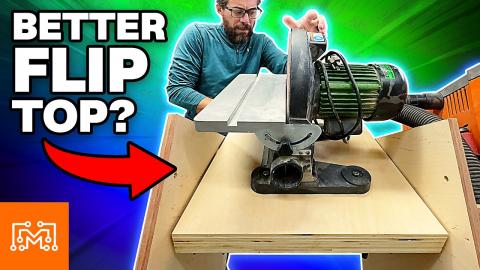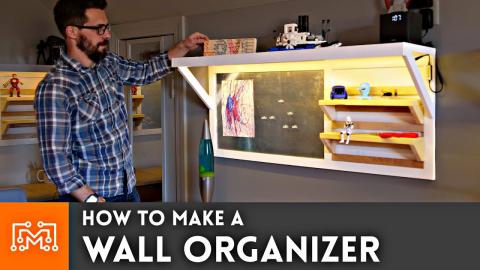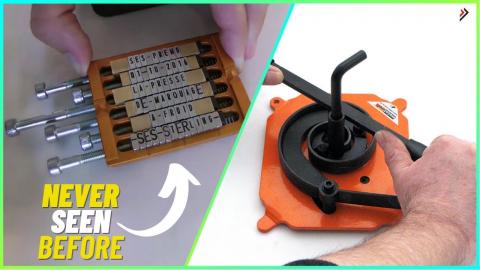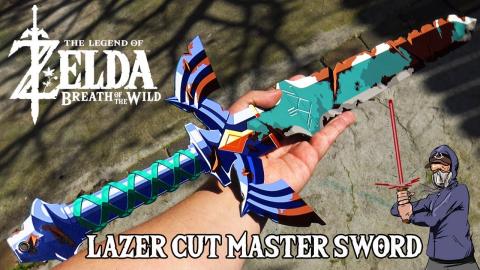How to Make A Tool Organizer
Description
I found it difficult to keep project-specific tools and parts organized, so we made a tool organizer that can store everything! Now you can bring everything you need with you in one place. If you're interested in making one for yourself, check out the plans below.
DIGITAL PLANS LIBRARY:
These Plans: https://iliketomakestuff.com/shop/product/tool-organizer-digital-plans/
www.iliketomakestuff.com/shop-categories/digital-plans
JOIN THE MAKER ALLIANCE"
https://www.iliketomakestuff.com/join
Subscribe to my channel: http://bit.ly/1k8msFr
Second Channel: http://bit.ly/iltms-2
MORE PROJECTS, POSTS AND EVENTS
http://www.iliketomakestuff.com
TOOLS & SUPPLIES WE USED(affiliate links):
https://kit.co/iliketomakestuff/my-woodworking-tools
https://kit.co/iliketomakestuff/shop-safety-gear
I WROTE A BOOK!!
http://www.iliketomakestuff.com/makingtime
Want to support ILTMS? Get exclusive content and more...
http://www.iliketomakestuff.com/patreon
BUY A SHIRT, STICKER, NOTEBOOK, DIGITAL PLANS and MORE!!
http://www.iliketomakestuff.com/store
FOLLOW:
http://twitter.com/iliketomakestuf
http://www.twitch.tv/iliketomakestuff
http://instagram.com/iliketomakestuff
http://facebook.com/iltms
MUSIC: http://share.epidemicsound.com/iltms
This entire project can be made from 2 8-foot long 1x6s, so breaking down the materials is pretty easy. First, we broke down the side walls and divider elements for the two boxes. I chose to make the sides overlap in a single joint, so each side wall will be the same length. While the sides are the same length, the lower tray differs from the upper box in that the lower walls are half as tall. This way, you can rip the 1x6 in half and get two walls. The overlapping joints were cut on the bandsaw (you could use a jigsaw also) in a way that the tongue and the recess are inverted so that each piece could fit regardless of orientation. Make sure to cut a dado in the upper box side walls to receive the dividers.
The dividers are a little wider than the box walls because they fit inside the dado channels. These pieces also were ripped down by 1/2" (1.27 cm) because the bottom panel will be inset inside the walls and this height difference leaves the right amount of room. Because there are no additional dividers on the bottom tray, I used a rabbeting bit to cut a groove for the bottom tray's bottom panel.
The handle was made by laminating two boards together and drawing a curvy-handle shape on some paper. This template helped me cut the handle shape using the drill press and a jigsaw. Then, cutting to saddle spaces in the handle assembly and the other divider, I glued the two together to make a cross-shaped unit. I wanted my tool organizer to have 4 equal spaces in side the tote, but if you wanted to have more, you would need to adjust the spacing and the dados. To make the wooden handle more comfortable, I used a small round-over bit to add a small fillet.
Now that all of the pieces were cut and prepared, I used glue, clamps, and brad nails to hold the elements together. The upper & lower box came together using the overlapping joints, the handle assembly fit nicely into the dados, and each bottom panel was glued and nailed in place. Because I wanted the tool organizer to be two independent elements that joined together, I need a way to join and lock them together.
There are many ways to join the two boxes together so that they can be locked and unlocked easily. I decided to use some 3/4" (1.9 cm) aluminum angle stock as sliders on each box. Matching the upper box's outer dimension, I cut some of the aluminum stock to 45-degree miters on the miter saw. These upper slides are attached to the outside of the box and hang underneath the top box. To leave room for the lower box to slide in place, I used washers as spacers before screwing the slides in place.
To create the lower slides, I followed the same logic, but instead of the outside dimensions, I cut the aluminum to the inside measurements. These lower slides were screwed to the inside of the lower box and spaced so that they fit nicely when placed under the top box. All that was left was to add a simple latch to the tool organizer's face to prevent the lower box from sliding forward.
This box was a result of having all of my beekeeping equipment in a ratty cardboard box and not having a convenient way to carry all of it to the beehive. This tool organizer could be custom made for a specific process or project; changing your oil in the cars, gardening, or organizing art supplies. There are endless uses for something like this, and I hope you make one to help improve your workflow. We have plans available down below if you are interested in making one!


